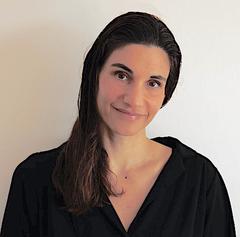URL: https://www.desy.de/news/news_search/index_eng.html
Breadcrumb Navigation
DESY News: Meytal Landau wins EU grant to study amyloids
News
News from the DESY research centre
Meytal Landau wins EU grant to study amyloids
Structural biologist Meytal Landau has been awarded two million euros by the EU to investigate microbial amyloid proteins. Amyloids are fibrous proteins that are of interest in various areas of medicine. Landau’s ERC Consolidator Grant from the European Research Council (ERC) will last five years and will help build a team at the Centre for Structural and Systems Biology (CSSB) on the DESY campus that will involve DESY, the Hamburg branch of the European Molecular Biology Laboratory (EMBL), and the University Hospital Hamburg-Eppendorf (UKE).
Amyloid proteins are most commonly heard of in reference to diseases such as Alzheimer’s and diabetes. They are so-called “sticky” proteins that in those diseases create plaques that interfere with cellular and organ function. However, amyloid proteins are also produced in nature as both a defence mechanism against infection by some organisms and as an attack method by pathogenic bacteria, such as Staphylococcus aureus, one of the main species of bacteria responsible for hospital-borne antibiotic-resistant infections.Landau’s lab, which is based at Technion - Israel Institute of Technology in Haifa, has made many advances in studying these structures using synchrotron X-ray radiation, such as provided by DESY's X-ray source PETRA III, and various methods of light and electron microscopy, as available at CSSB. In her previous studies, her lab has shown how microbial amyloids contribute to the development of biofilms, generate toxic effects on certain cells, and promote antibacterial activity. Landau now plans to advance this research with a dedicated team at CSSB. CSSB is a joint initiative of nine research partners, including DESY, that devotes itself to infection biology research.
“Here, we propose to leverage our expertise and knowledge, and emerging methods in light and electron microscopy, to expose the functional amyloid mechanism of action and regulation at high resolution,” says Landau. The results of the research could be of help for generating novel antibiotics or disrupting challenging treatment-resistant infections.
“Meytal Landau's work so far has challenged many previously held assumptions about the structure and function of amyloids,” says DESY's director in charge of Photon Science, Edgar Weckert. “We are happy she will join us here in Hamburg on our campus to advance the field. We look forward to this exciting collaboration!”




